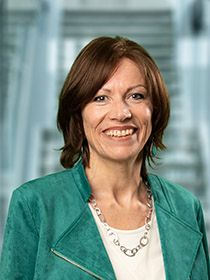The effects of digitalization on politics, administration and democracy were the core theme at CeDEM17, an annual event organized by the Department for E-Governance and Administration at Danube University Krems. This year, social media was a pivotal topic at the e-democracy and open government conference attended by 90 experts from 27 countries.
n her keynote speech about digital transformation, which cited the USA as an example, Univ. Prof. Dr. Ines Mergel from the University of Konstanz saw government entities lagging far behind both the corporate and private sectors in respect of innovation. E-government is only practiced superficially to some extent, and neglects public concerns. According to Mergel, the entire process –not just IT – needs to be reassessed, otherwise we would just be “re-arranging the deckchairs on the Titanic.”
Digital SWAT Teams
The public administration professor analyzed that with many processes becoming outsourced, costs have surged and innovation drained away. A worldwide trend to counter this problem is setting up state-directed innovation teams (sometimes even martially referred to as task forces or SWAT teams) for which the best heads in the digital industry can be hired.
Another central theme at CeDEM17 – which included others such as “Tracks to Smart Cities,” “Open Data,” “Transparency and Open Innovation” - was social media. The issue of fake news and its consequences more than obviously demonstrate the degree to which digitalization influences all areas of public life, said Mag. Friedrich Faulhammer, Rector of Danube University Krems, in his opening speech. He continued: “Conferences such as CeDEM are an important forum for understanding these changes and discussing solutions.”
An international panel organized by the Konrad Adenauer Foundation also discussed how the media landscape is influenced by fake news. Among the participants were Dave Karpf, Associate Professor at George Washington University School of Media & Public Affairs, and Jacque Manabat from ABS-CBN News (The Philippines). “CeDEM themes converge at fake news: on the one hand this development threatens the future of democracy in the digital age; on the other hand, though, collaboration and free access to information may provide the solution to the problem,” says Univ.-Prof. Dr. Peter Parycek, Head of the Department for E-Governance and Administration at Danube University Krems, who hosted the discussion.
In turn, keynote speaker Dave Karpf from George Washington University (Washington, USA) pointed out that while digital media not only changes the way we communicate, it also - and particularly - requires new “listening.” Organizations such as Change.org or Upworthy, and political parties too, are increasingly using digital media to capture public opinion trends, applying analytical tools to be able to react quickly. This “analytical activism” is also the subject of his new book, which also warns of the dangers of relying too much on the digital ear.
Best Paper Award goes to Boston
This year’s Best Paper Award went to Marco Deseriis, assistant professor of Media and Screen Studies at Northeastern University, Boston, for his article on “Direct Parliamentarianism: An Analysis of the Political Values Embedded in Rousseau, the ‘Operating System’ of the Five Star Movement.” All conference submissions are now online on the conference homepage or available in print in the conference proceedings. Selected CeDEM reports will be also be published in Danube University Krems’ open access journal JeDEM (eJournal of e-Democracy and Open Government).
The CeDEM conference at Danube University Krems has been held annually since 2007. In September 2018, it will be held in conjunction with the prestigious e-government conference IFIP EGOV-EPART.
Contact
Tags
